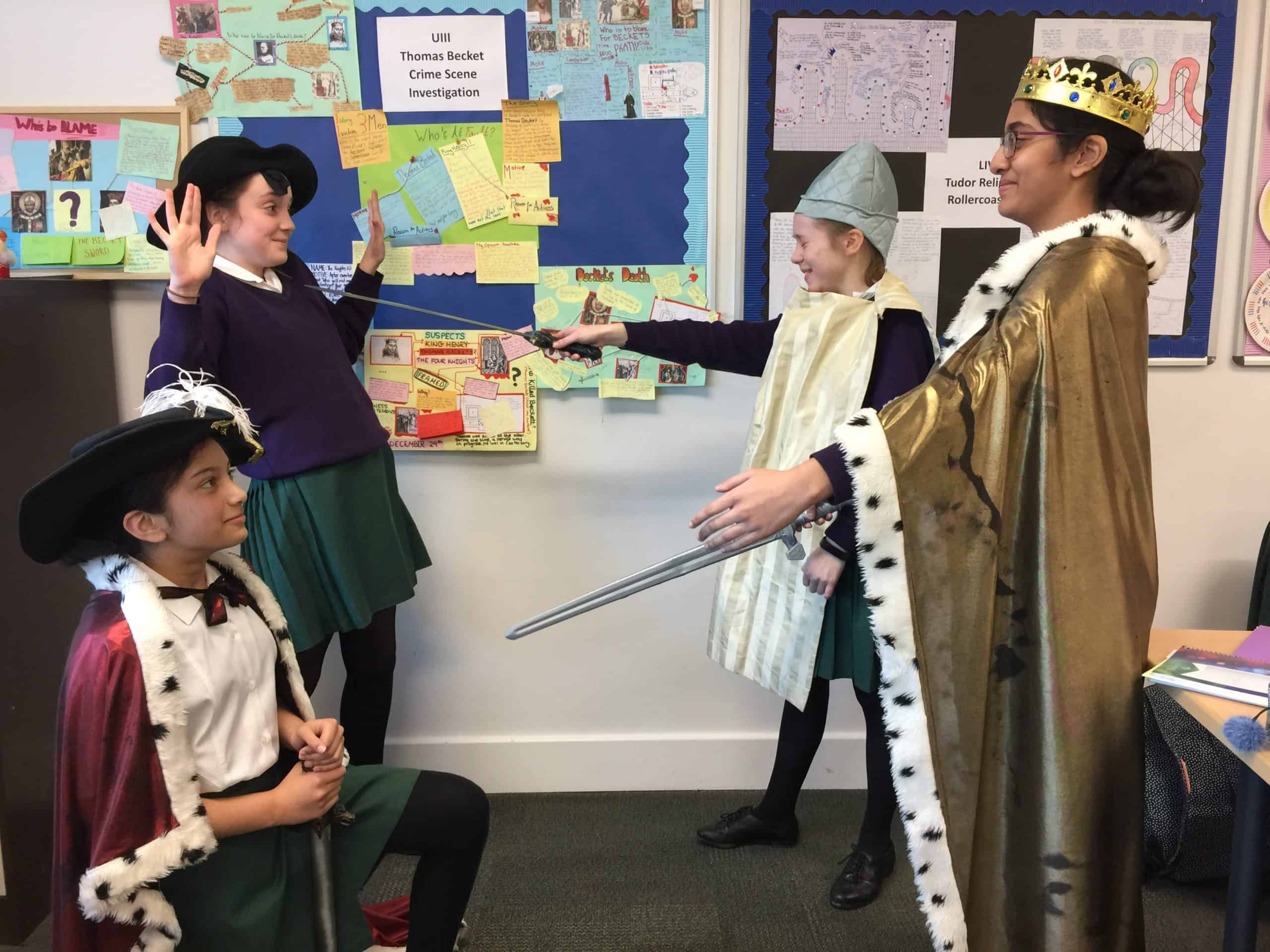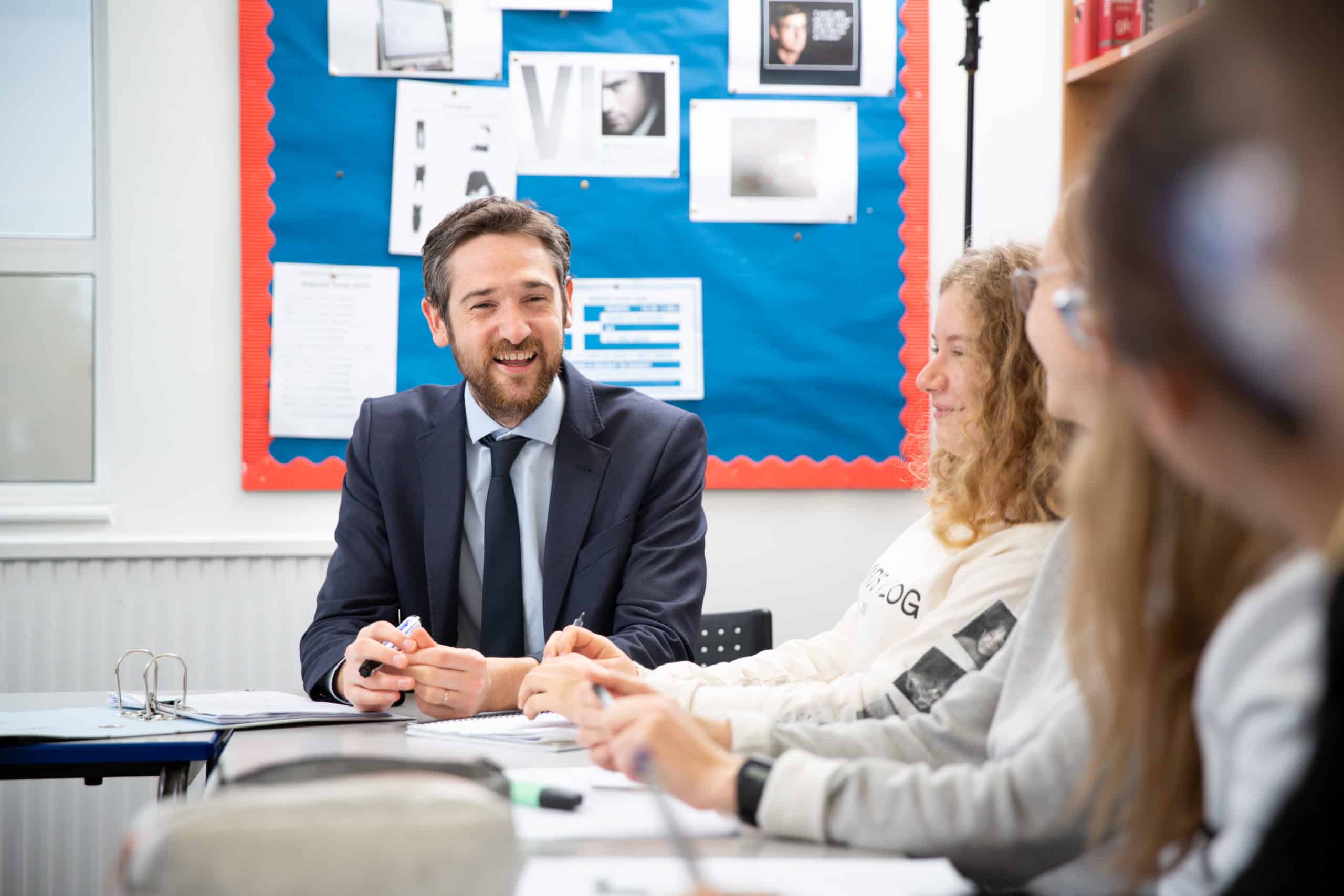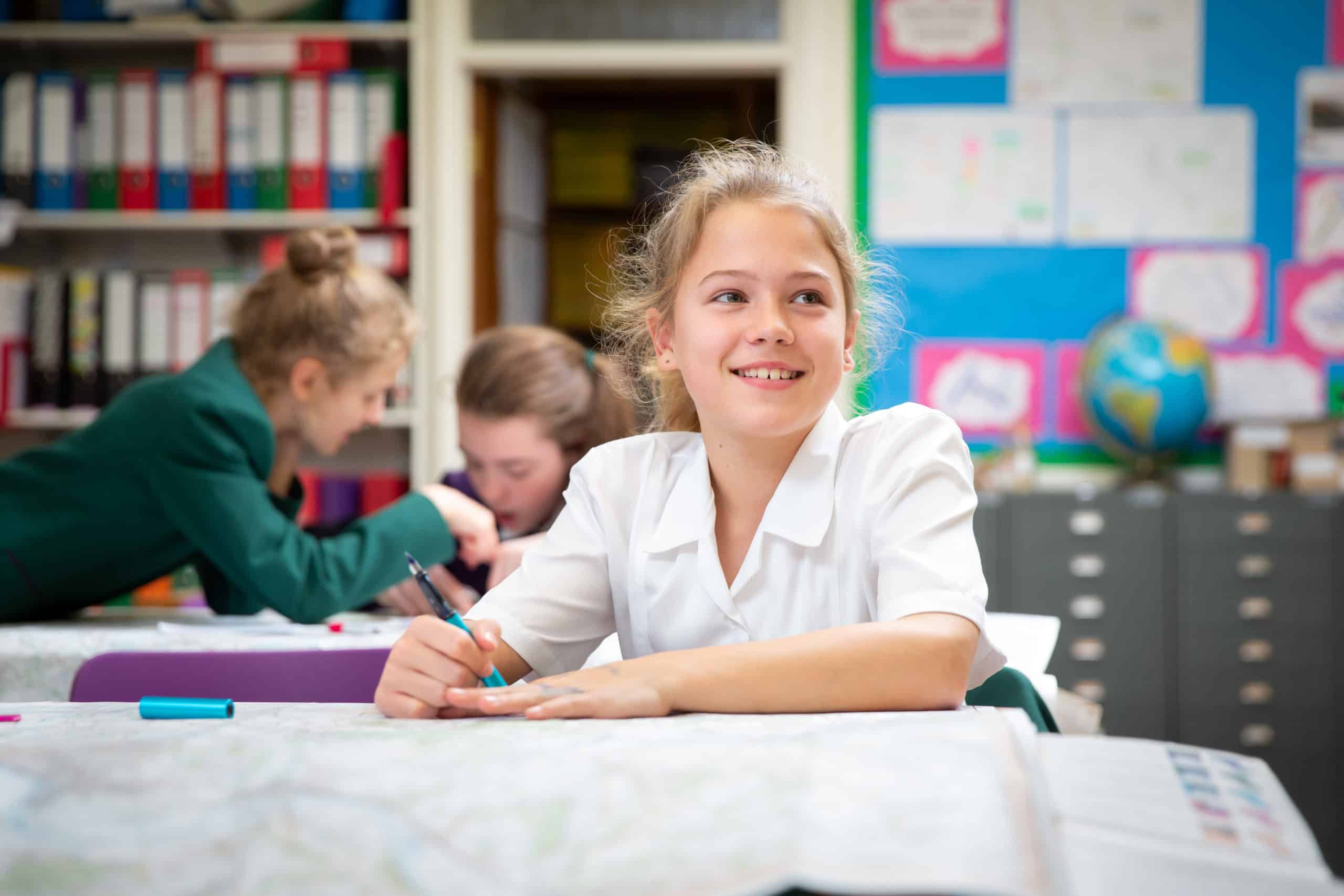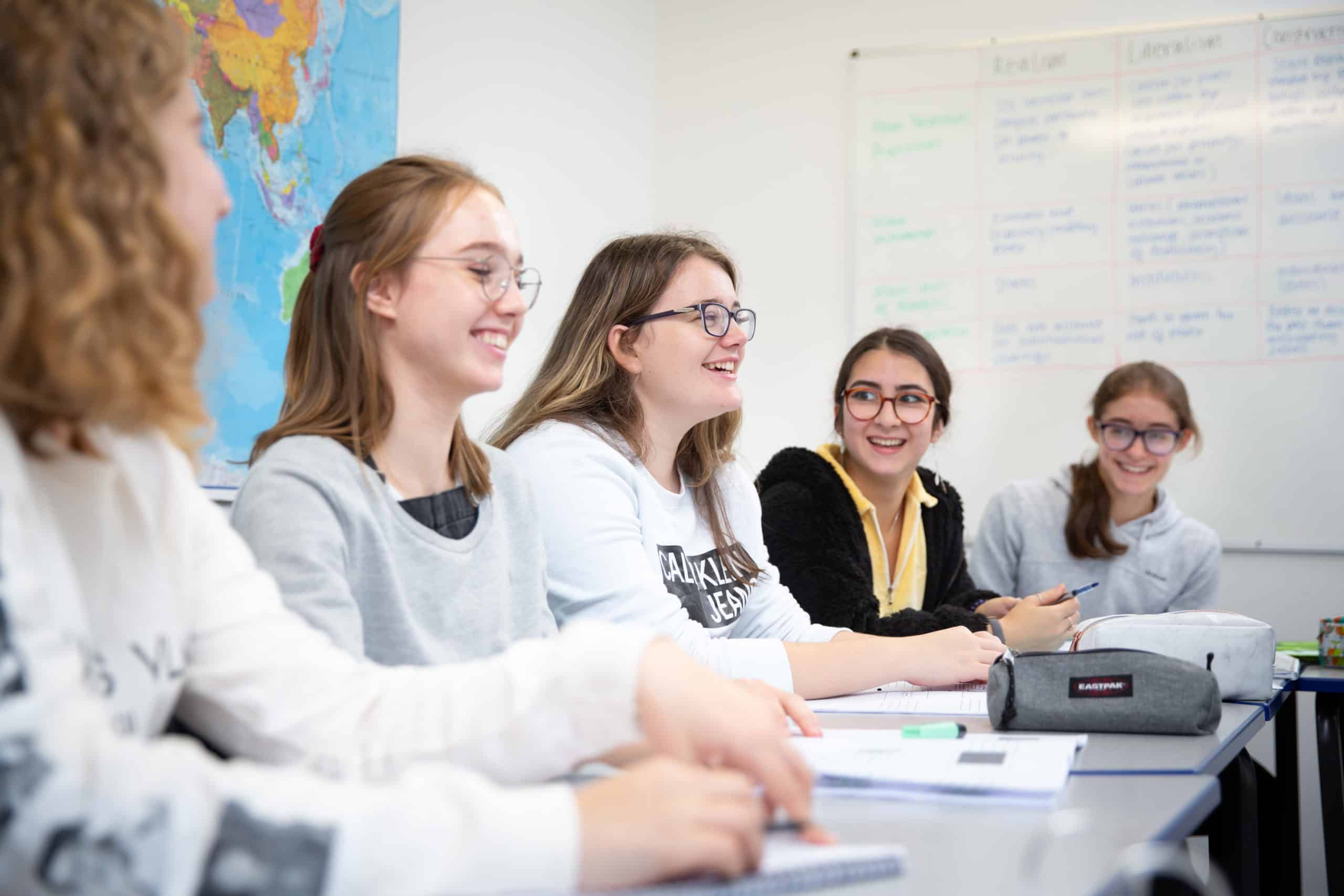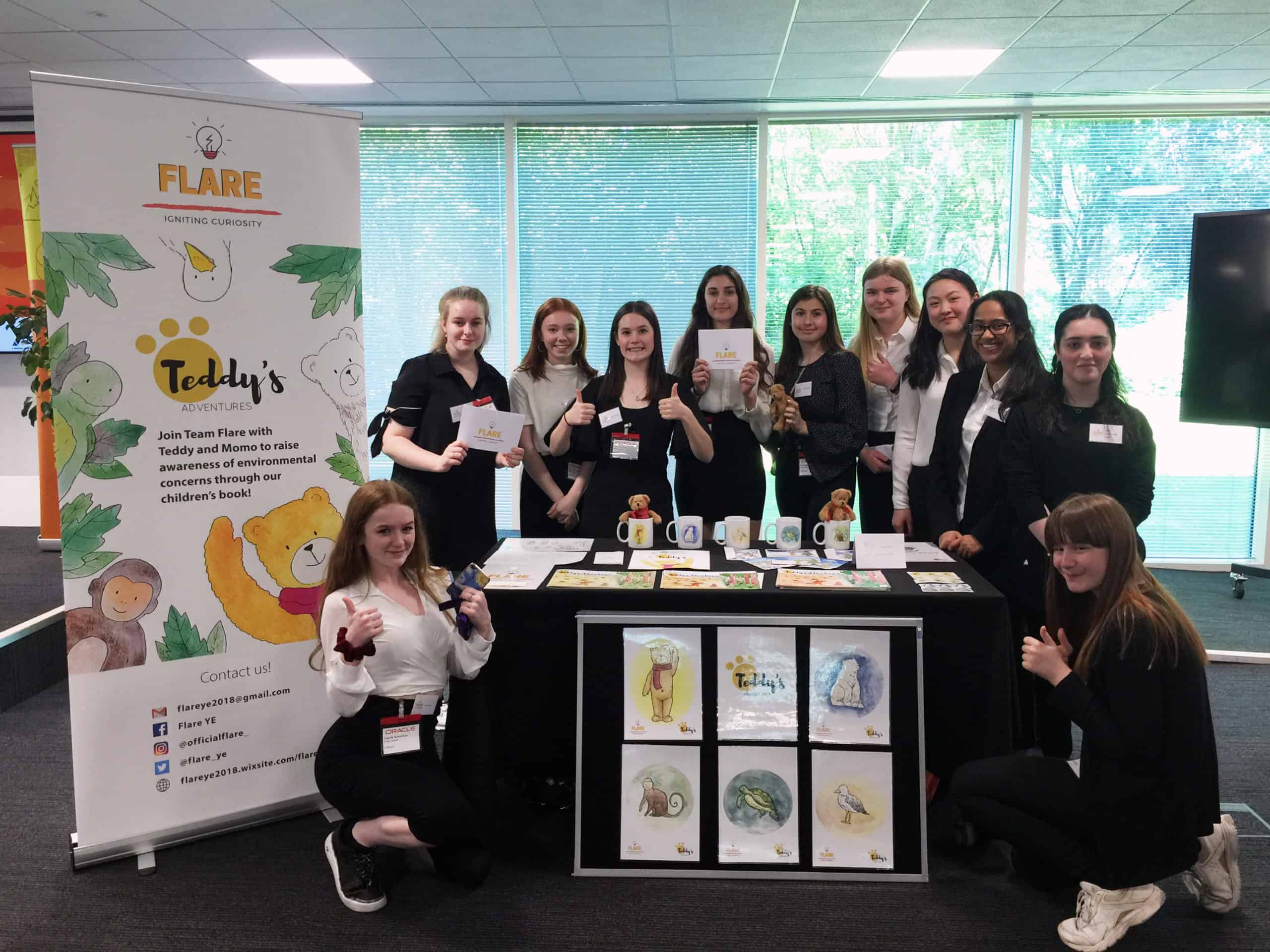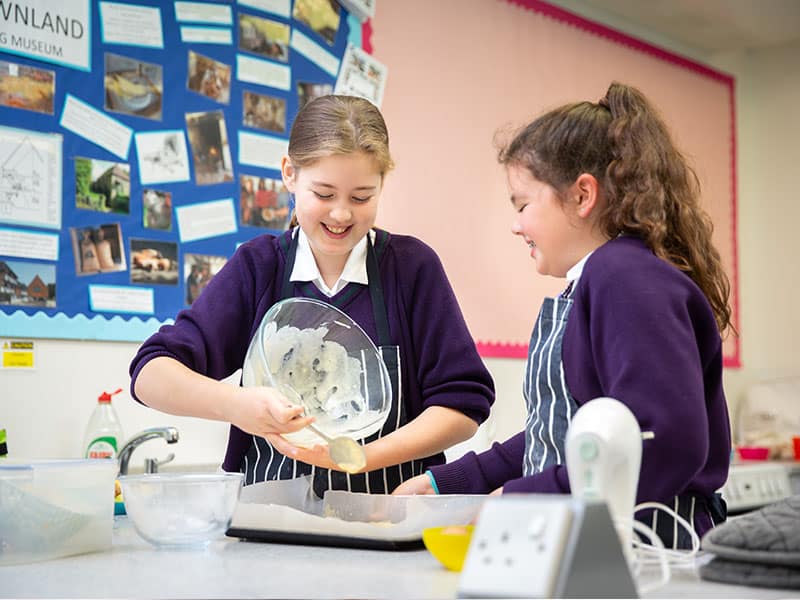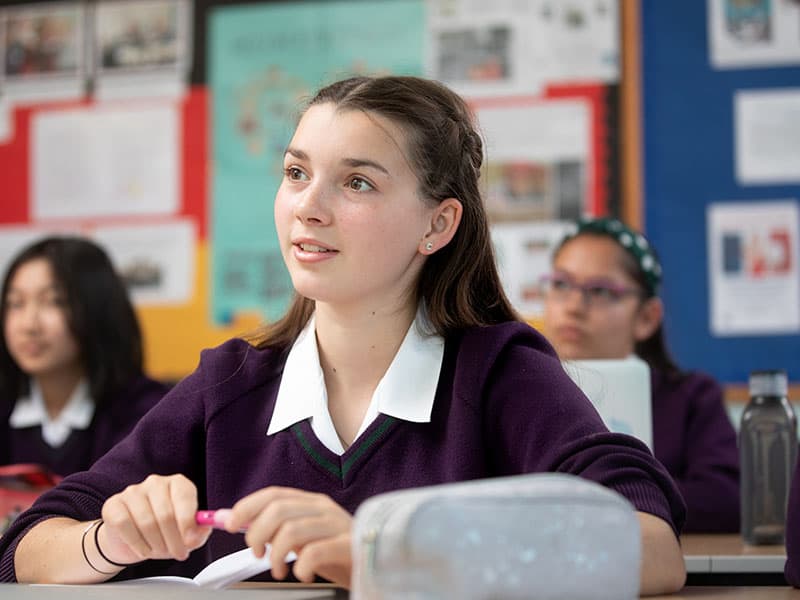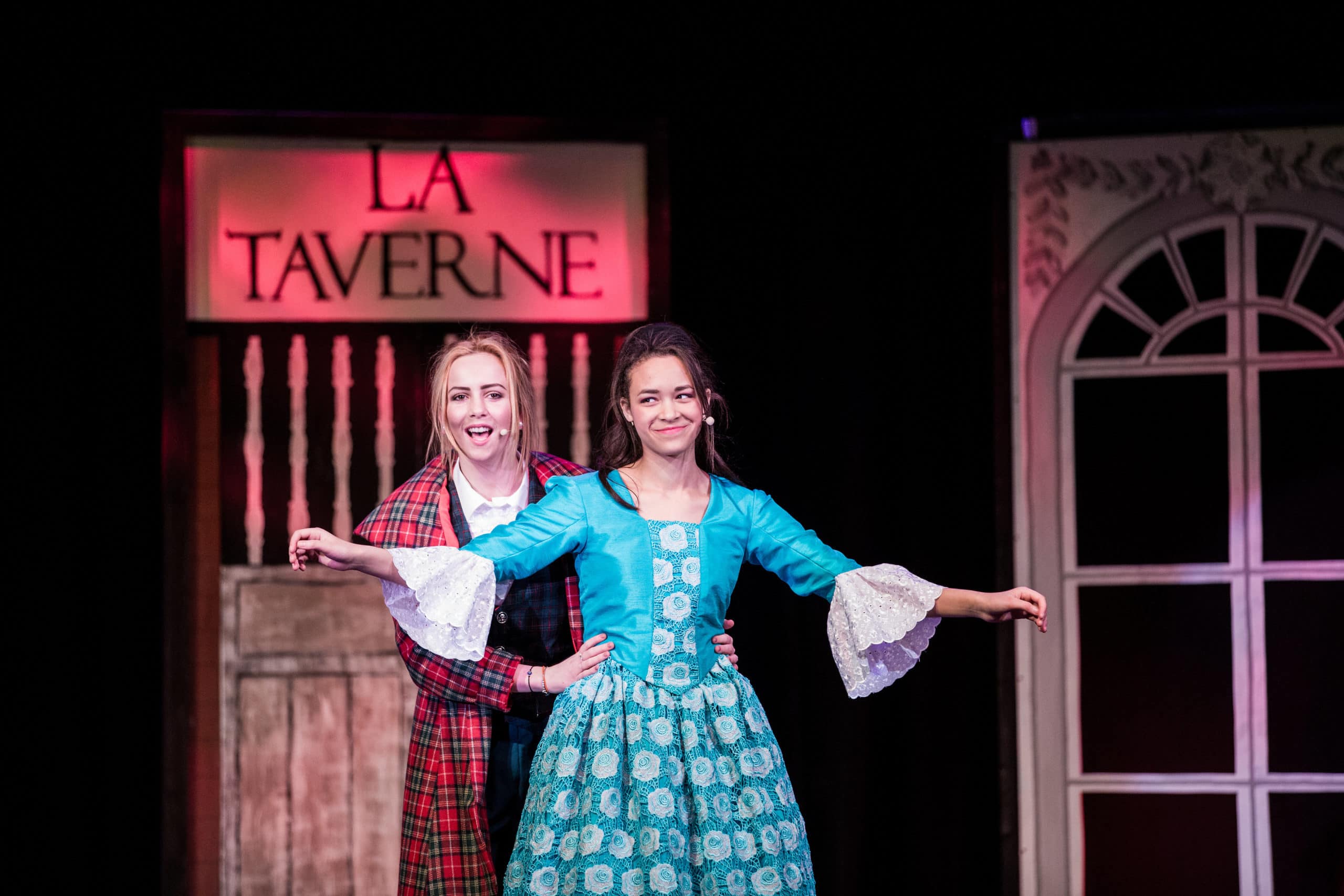History
- Home
- Archive by Category "Senior"
- Page 4
In a world that moves at such a fast pace, History at The Abbey provides the tools our young women will need to look at the world with a quizzical and an informed eye.
It is the core aim of the department to provide a learning environment that will foster a life-long love of the subject, in all its many facets, but also the ability to interrogate evidence, question received opinion, relish ambiguity and make informed judgements.
“What? Why? and So What?
Abbey historians move beyond mere dates to explore the big questions and through reasoning from evidence, debate and argument, develop the confidence to make their own judgements.“Rosanna McGee, Head of History
By undertaking an in-depth enquiry into the challenges of being a woman in a man’s world in Medieval times, investigating why Mary Prince published her life story, reflecting on oppression and resistance through the centuries or standing in No Man’s Land in Flanders Field empathising with the British Tommy fighting his way across the muddy landscape, Abbey historians explore the rich history of their world.
This firm foundation will prepare them to question the world around them and engage with the big issues of their age.
Beyond the classroom
Invited speakers challenge our GCSE, IB and A-level students with inspirational talks. Sixth Form historians gain new perspectives from respected historians by attending lecture days. Other year groups participate in a range of educational visits such as experiencing Medieval Life through historical enactments at the Weald & Downland Living Museum or examining the reality of Medicine through Time at the Royal Berkshire Medical Museum. Our close links with the Museum of English Rural Life mean that many students have opportunities to work in archives, to do work experience in the museum, and engage with History in the community.
Welcome from Head of Department – Rosanna McGee
History at The Abbey as seen through the eyes of our students:
Global Politics
- Home
- Archive by Category "Senior"
- Page 4
Whatever path students choose after Sixth Form, they will have to engage in the political world, and Global Politics at The Abbey is a fantastic place to start or further the understanding of the political world around you.
Global Politics is an IB diploma course that explores the politics behind the world around you by looking at some of the most interesting and recent changes from all across the world. Throughout the course students will have the chance to develop their knowledge of the role of politics in everyday life, work with political concepts and ideas and develop key skills such as essay writing, independent academic research and presenting.
Students can take Global Politics at Standard Level and Higher and share lessons. Both sets of students get to explore the four main units: Foundation Unit (which gives all students a comprehensive introduction to the course), Peace and Conflict, Development and Human Rights. Those who take the subject at Higher Level will have the chance to carry more in depth, independent research into topics related to Borders, Health, Poverty, Identity, Environment and Security to produce a presentation based on their findings.
Lessons are lively and fun with lots of engagement and discussion, offering members of the class insightful and captivating areas of content to reflect on.
Welcome from Head of Department – Dr Phillip Gannon
Global Politics at The Abbey as seen through the eyes of our students:
Geography
- Home
- Archive by Category "Senior"
- Page 4
‘Geography is the subject which holds the key to our future’ – Michael Palin
Geography is a study of the rapidly changing world in which we live. It develops a knowledge and understanding of the interaction between the physical and human environment. Geographers understand the importance of planning and managing our resources for both present and future generations.
Geographers ask questions. Students are encouraged to use them to explore the world; by identifying and analysing a range of evidence they can learn to form balanced opinions. As a department, the aim is to empower all students to build the tool kit necessary to formulate their own complex answers to questions like:
- What do pirates have to do with Geography?
- What do photographs and films of Reading tell us about local people’s geographies?
- How does the use of my phone affect people on the other side of the world in the Congo?
- What do geographers have to add to the study of tropical diseases?
Beyond the classroom
Geography exists beyond the limits of classroom – fieldwork is an essential part of the students’ geographical journey. Each year group has a field trip.
- Upper III (Year 7) design their own fieldwork investigation on a woodland ecosystem in Amersham.
- Lower IV (Year 8) design their own fieldwork investigation on a coastal environment in Hengistbury Head.
- Upper IV (Year 9) decide if Chessington World of Adventures is a successful tourist attraction.
- Two days of fieldwork accompany the GCSE course and four days accompany the A Level/IB course.
The department also offers enrichment trips and recent visits include Northern Ireland, Iceland, Norway and Croatia.
Vibrant and knowledgeable, the department inspires a love of Geography in all the students.
Welcome from Head of Department – Janette Gray
Geography at The Abbey as seen through the eyes of our students:
Economics
- Home
- Archive by Category "Senior"
- Page 4
A subject for those students who are curious about everything that happens around them. What is the difference between public debt and a budget deficit? Why has the pound been falling in value? Why are footballers paid more than nurses, and why is the success of the Korean boy band, BTS, good for the Korean Balance of Payments? What is meant by a “sustainable economy” and how does an emissions trading system help achieve this. These are just some of the questions an Economics student can expect to consider.
Whilst not necessarily providing a right answer, studying Economics provides a framework enabling students to understand the impact of government economic policy decisions both nationally and internationally. It develops analysis, problem-solving, evaluation and essay-writing skills that are transferable across almost any career route. Don’t choose Economics just because you might study it at University; Economics is a useful support for Politics, Philosophy, Law, History and Geography.
“Politics is just a high concentration of Economics.”
Vladmir Lenin
Economics is definitely the perfect subject to do at school. It will prepare you very well for the academic challenges you will encounter at university and for understanding what is going on in the world.
Beyond the classroom
A number of opportunities are available, including:
- Attending economic conferences to hear inspiring speakers such as Evan Davis
- Be an investment banker for a day and experience a live stock market trading floor at Henley Business School
Welcome from Head of Department – Ian Bennett
Economics at The Abbey as seen through the eyes of our students:
Business Management
- Home
- Archive by Category "Senior"
- Page 4
Business Management is offered as part of the International Baccalaureate programme at both Standard Level and Higher Level. It involves learning about and applying a variety of business models and tools in the context of the environment in which businesses operate. Not only is the subject highly case study driven, but it also draws heavily on current business affairs to understand how the theory is put into practice in the real world of commerce.
Perhaps most surprisingly, students have to come to terms with the idea that, in business, there is generally no such thing as THE right answer – rather they must learn to analyse an ever-changing external environment, evaluate their choices, justify them and then be prepared to adapt them. This is why the study of Business Management is seen as an extremely practical subject and immediately applicable in the real world.
Supported by a framework of notes – but more importantly, their own research into a number of companies of their choice – students learn to use the language of the business world in order to discuss the uses and application of the syllabus content in the context of six core concepts, namely Change, Culture, Ethics, Globalisation, Innovation and Strategy.
Teaching and Curriculum
Teaching is undertaken in a university seminar style and formal assessment involves the preparation of an Internal Assignment and two written papers at the end of the two years of study, one of which is based on a pre-seen Case Study and the other is drawn from the entire syllabus.
The IB syllabus is a well-rounded one which offers a broad and detailed introduction to all aspects of the business world in the areas of:
- Business Organisation and Environment
- Human Resource Management
- Finance and Accounts
- Marketing
- Operations Management
Progress through the syllabus follows a journey that most businesses would follow from start-up, hence why involvement in the Young Enterprise programme is considered a significant aid to enhancing knowledge and understanding.
Participation in the Young Enterprise programme provides an ideal opportunity to put ideas into practice and discuss the outcomes objectively. It is recognised that, because of the workloads involved in the IB programme, some students might find it difficult to include time for the YE programme and this will not compromise their learning. However, if it can be included then it adds value to the process and is actively encouraged.
Real-world case studies are used to reinforce learning and the opportunity to undertake the equivalent of a Management Consultancy project towards the end of the second year, in the form of the Internal Assignment, on a real business with a real problem that needs resolving. Not only does this teach the students how to interact with clients but also allows them to apply many aspects of the entire syllabus as a form of revision prior to the external examinations.
Beyond the classroom
Regular reading of current business news is essential to provide a well-rounded appreciation of the syllabus, as well as following business-related television programmes. The “Inside the Factory” series from the BBC is one such excellent example as it helps students to understand the intricacies of Operations Management, whilst “The Apprentice” is recognised as a perfect “How NOT to do” guide to approaching business.
There is an extensive reading list available in the Library which provides students with the opportunity to develop greater insights into the business world as well as providing a broader context to enhance knowledge and understanding. This list is regularly updated and added to as new titles become available which include, amongst others, the insights of a US nuclear submarine commander on leadership (“Turn the ship around!” by L David Marquet) and advice on how women can break the glass ceiling in the business world (“Lean in” by Sheryl Sandberg).
Student Showcase
The IB curriculum requires students to choose a subject for their Extended Essay and where students have chosen a business-related topic, they have been able to undertake a significant piece of research and evaluation into the real world of business. Recent essays include:
- To what extent does the country in which a business is a start-up affect its chances of becoming a “dot com” Unicorn?
- To what extent can the growth of The Boohoo Group plc as an e-commerce retailer be attributed to their risk management strategy?
In case you are interested, the conclusions reached in these essays were respectively as follows:
- Attainment of Unicorn status (a valuation of $1bn+) is significantly dependent on the size of the venture capital market in different countries which explains why the vast majority (75 – 80%) of unicorns are found in the US and China
- Boohoo Group plc has an extremely rigorous approach to risk management which proactively looks at an extensive range of possible risks, thereby allowing the senior management to be able to game these risks and prepare the company for changes in the external environment far quicker than their competitors
Fascinating stuff, I’m sure you will agree and even more impressive coming from Sixth Form students.
University Choices
Students do not need to have studied Business Management in order to apply for a Business-related degree but it certainly helps.
Degree choices tend to split evenly between business-specific courses such as Business with Marketing or International Management for example, or broader business-related courses such as International Relations. Virtually all courses offer industrial placements as part of the opportunity to apply knowledge in the real world and this approach is highly recommended, not only to enhance learning and understanding but also to help develop a network of companies for future employment. Generally undergraduates will find their first first job through these placements.
Future careers are many and varied – be it Chartered Accountancy, Marketing, Advertising and more recently, social media related roles. Given the ever-changing nature of the business environment, a business-related degree is likely to be relevant to pretty much any career (unless it is one of the highly vocational ones such as Medicine), so choosing a Business degree keeps many avenues wide open in the future.
Welcome from Head of Department – Charles Lovibond
Business Management at The Abbey as seen through the eyes of our students:
Textiles
- Home
- Archive by Category "Senior"
- Page 4
Studying Textiles is a wonderful way to combine creative flair, technical precision and an understanding of the history, cultural and social impact of design and fashion.
Bringing a concept from the drawing board to fruition is highly satisfying and students use the well-equipped textiles studio to bring their ideas to life. CAD (Computer Aided Design) software helps to refine and develop designs and there is a full range of equipment, fabrics, dyes and threads always on hand. Inspired by the work of designers and craft specialists students use a wide vocabulary of techniques and surface decoration to embellish their imaginative designs. The iterative design process develops problem solving skills and our pupils will often surprise themselves when trying out new ideas through taking risks and by being open-minded. We are always so pleased to hear the many compliments we receive from our visitors on the high standard of work achieved by the students.
Fashion is architecture: it is a matter of proportions.”
Coco Chanel
Textiles have such a wide range of applications that they affect every aspect of our daily lives and at A level our students discover how in the ever-changing world of the 21st century, new technology is developing a wealth of smart and modern fabrics with exciting functions. They begin to consider the ethics of design and manufacture, the challenges of large-scale production and how to solve some of the design issues they encounter.
Welcome from Head of Department – Jill Lesbirel
Textiles at The Abbey as seen through the eyes of our students:
Music
- Home
- Archive by Category "Senior"
- Page 4
The Abbey School is renowned for its outstanding musical tradition. We aim to offer something for everyone in the hope of instilling a life-long love of music and the performing arts.
The musical life of the school combines academic study with an exciting extra-curricular programme of ensembles, concerts, productions, visits, and overseas concert tours. The department is always busy, with our Music ICT Suite very popular with our composers.
The wide-ranging programme of individual music lessons is provided by over 20 leading instrumental and vocal teachers. Some of the world’s finest musicians visit each year to give recitals and to talk to the students. As an academic subject, Music connects uniquely with so many other disciplines and this is reflected in its popularity as a GCSE option and in the Sixth Form, with musicians often going on to study at prestigious universities and conservatories.
Specialist scholarships in Music are offered to pupils joining the Senior School in Upper III (Year 7) and are awarded for three years until the end of Upper IV (Year 9). Find out more on The Abbey’s Scholarships page.
There are many additional opportunities to participate in Music at the Senior School. Find out more on The Abbey’s Extra-Curricular page.
Food and Nutrition
- Home
- Archive by Category "Senior"
- Page 4
One of the very nicest things about life is the way we must regularly stop whatever it is we are doing and devote our attention to eating.” Luciano Pavarotti
The Food and Nutrition department have a passion for ensuring that students leave the school with the ability to cook for themselves as well as being aware of the need to be less wasteful and sustainable with food. In lessons students work on developing key practical skills, use of equipment and functions of ingredients. This is completed through a range of practical and food experimental lessons.
Outside the classroom
There are opportunities to hone skills by undertaking the Leith’s Toolbox and Confident Cook courses, get creative in a cooking club and or take part in our regular competitions- could you create a showstopper worthy of Bake Off? There are also a number of cross-curricular activities available to students, such as International Cooking and also a Classics and Food trip to Italy.
Welcome from Head of Department – Sarah Pollard
Food and Nutrition at The Abbey as seen through the eyes of our students:
English
- Home
- Archive by Category "Senior"
- Page 4
English at The Abbey involves studying literature from a diverse range of genres, cultures and time periods. The lessons are inspirational, challenging and creative, and the aim is for all students to become thoughtful readers, expressive writers and articulate speakers who will develop a lifelong love of language and literature.
At KS3, the focus is on promoting reading and writing for enjoyment, covering a wide range of literary and non-fiction text types whilst also developing skills in analysing language in these types of work. All students take English Language (AQA GCSE) and Literature (CIE iGCSE) at KS4, and both English Language and English Literature continue to be popular subject choices in the Sixth Form, both for A Level and as part of the IB diploma programme. Many of the students go on to study English at degree level and often pursue careers in related areas, including media, marketing, journalism, law and education.
Outside the classroom
The department has strong links to the Drama department and the Library to enhance students’ learning experiences through regular theatre trips, book events and author visits. Students are also offered a variety of extra-curricular activities such as book clubs, creative writing groups and competitions, public speaking and debating. The fantastic teachers in the department help to build confidence, leading to many successes in local and national competitions!
Welcome from Head of Department – Gill Butler
English at The Abbey as seen through the eyes of our students:
Drama
- Home
- Archive by Category "Senior"
- Page 4
The Drama department is a thriving and dynamic environment where students develop an enduring passion for the subject.
Drama is offered from Upper III (Year 7) to Upper VI (Year 13) (including at GCSE, A level and IB), taught by experienced and inspiring subject specialists with backgrounds in performance, direction and the study of theatre as an academic discipline. Independent learning, resilience and attention to detail are essential, preparing students for future study in a range of academic disciplines, while accompanying them on a journey of self-discovery, and allowing them to explore their creativity. Drama isn’t only about being on stage, students have a chance to explore different elements of design, develop their critical thinking and cultivate transferable skills such as public speaking, teamwork and project development.
“Theatre is the art of looking at ourselves”
Augusto Boal
Examination results have been consistently strong, and many of the students have gone on to study Drama or Acting at the country’s leading universities and conservatoires.
Drama also offers several productions and a range of theatre trips each year and there is a unique Scholars’ programme run by the Theatre Artist in Residence, Cassie Friend (RedCape Theatre).


